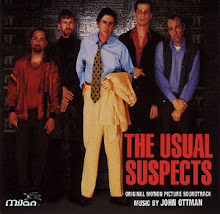This recording was made with the utmost care and professionalism. Microphones were chosen and placed in the general vicinity of each instrument in order to capture the sonic characteristics of the music performed. Each instrument was tuned before and often during the recording sessions and arrangements were rehearsed or at least discussed.--the liner notes from Ben Folds Five's Whatever And Ever Amen
The lyrics or text were created to detract from the repetition inherent in modern instrumental pop music. Iambic pentameter was not always an option, however when possible, the last syllable of a line was manipulated in order to rhyme with the last syllable of the preceding line.
Finally, the best takes were chosen and the others were culled and thrown away or erased, otherwise this record could have easily been hundreds of hours long; much longer than the generally accepted running time of a modern commercial recording. Every measure was taken to keep this record mistake-free. The mixing engineer, Andy Wallace, who has mixd many top notch famous recording stars, often took the initiative and muted or "ducked" missed notes and unsavory textures.
The band and producer are confident that your money was well spent on an album relatively free of major sonic and musical problems.
This tasteless cover is a good indication of the lack of musical invention within. The musical growth of this band cannot even be charted. They are treading water in a sea of retarded sexuality and bad poetry.
--from a review of Spinal Tap's Intravenus de Milo
My last fifteen minutes. Mixed by Bob Clearmountain at Studio One, London.
For those of you who may have forgotten, we used to have "record albums", which were plastic grooved discs constituting the summit of technology with regard to playing recorded music in the home. The disc was housed in a paper sleeve, which in turn was held by a cardboard sleeve or cover. Often the sleeve and/or the cover contained pictures of the recording artist, lyrics and liner notes. Sometimes the cover unfolded like a book. It was a great time to be alive.Liner notes were often self-indulgent, like the rock musicians who drafted them. The language therein could be parsed by young fans, who would engage in Talmudic analyses aimed at understanding the hearts of the "talent" they lionized. Also, the bloated prose aided in the self-deception needed to overlook the fact that, three tracks deep, it was becoming obvious that the rest of the album did not possess the musical quality of the song everyone was playing on the radio. Eventually, record albums were replaced by CD's which, although more technologically advanced than their vinyl forebears, still contained booklets that carried on the liner note tradition.
Now music is downloaded and there are no liner notes. You will never know who played drums on track 5. Such a shame.










No comments:
Post a Comment